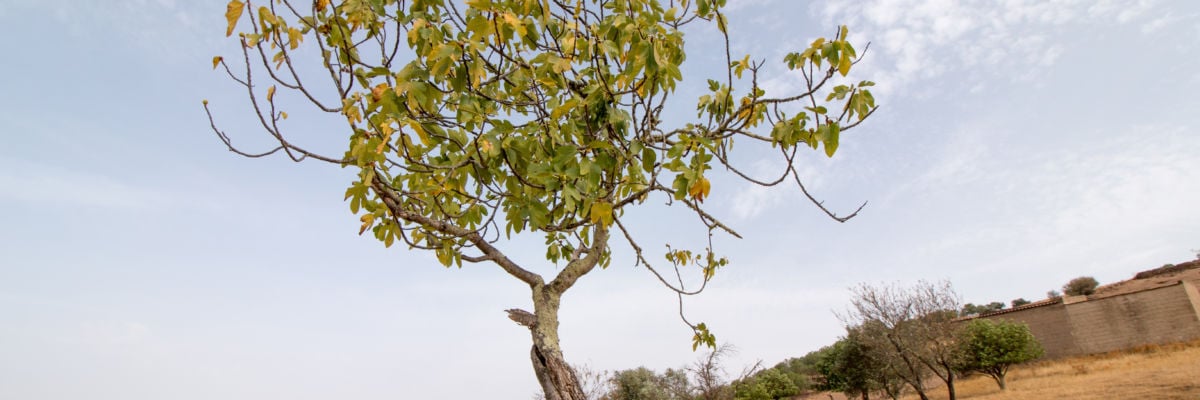
There’s a scene in the 1979 comedy The Jerk in which a madman has randomly targeted dim-witted gas station attendant Navin Johnson (Steve Martin) for assassination. The madman’s aim is off, and he ends up shooting the oil cans directly behind Navin, prompting his memorable line, “He hates these cans! Stay away from the cans!”
Navin persists in this confusion until his boss Harry (Jackie Mason) corrects him: “He doesn’t want to put holes in the cans, he wants to put holes in you!” Until that point, Navin couldn’t see past the cans to understand what was going on. The cans were just an inadvertent symbol of the madman’s rage.
I’m reminded of that scene in reading the 1927 talk (and later, essay) Why I Am Not a Christian, in which the British philosopher Bertrand Russell argued that Jesus was not, in fact, “the best and the wisest of men.” To be sure, Russell accepted certain of Christ’s teachings, even claiming to ”agree with Christ a great deal more than the professing Christians do” on teachings such as not judging, turning the other cheek, and so forth. But in particular areas, Russell found Jesus’ morals lacking. To wit:
Then there is the curious story of the fig-tree, which always rather puzzled me. You remember what happened about the fig-tree. “He was hungry; and seeing a fig-tree afar off having leaves, he came if haply he might find anything thereon; and when he came to it he found nothing but leaves, for the time of figs was not yet. And Jesus answered and said unto it: “No man eat fruit of thee hereafter forever” . . . and Peter . . . saith unto him: “Master, behold the fig-tree which thou cursedst is withered away.” This is a very curious story, because it was not the right time of year for figs, and you really could not blame the tree. I cannot myself feel that either in the matter of wisdom or in the matter of virtue Christ stands quite as high as some other people known to history. I think I should put Buddha and Socrates above him in those respects.
In other words: “He hates this fig tree! Stay away from the fig tree!”
I cannot help but wonder how Russell would have approached a passage like 1 Kings 11:26-40, in which the prophet Ahijah tears a garment into twelve pieces and instructs the king to pick up ten of them, foreshadowing the division of the Israelites into the ten northern tribes (Israel) and the two southern tribes (Judah). Reading this, would he seek to understand why the prophet was mad at a garment and object that the garment had done nothing wrong? Or would he understand (as he apparently failed to in his objection to Jesus’ conduct with the fig tree) that the action here is symbolic?
In the case of Jesus and the fig tree, the symbolism of Jesus’ action should have made immediate sense, for before cursing the fig tree Jesus gave the Parable of the Fig Tree, making the symbolic meaning clear (Luke 13:6-9):
And he told this parable: “A man had a fig tree planted in his vineyard; and he came seeking fruit on it and found none. And he said to the vinedresser, ‘Lo, these three years I have come seeking fruit on this fig tree, and I find none. Cut it down; why should it use up the ground?’ And he answered him, ‘Let it alone, sir, this year also, till I dig about it and put on manure. And if it bears fruit next year, well and good; but if not, you can cut it down.’”
This imagery is nothing new. As the prophet Isaiah declared, “[T]he vineyard of the Lord of hosts is the house of Israel, and the men of Judah are his pleasant planting; and he looked for justice, but behold, bloodshed; for righteousness, but behold, a cry!” (Isa. 5:7).
Jesus gave the parable of the fig tree “on his way through towns and villages, teaching, and journeying toward Jerusalem” (Luke 13:22), and it’s at the culmination of this journey that we see him cursing the fig tree. Here’s how St. Mark describes the scene:
On the following day, when they came from Bethany, he was hungry. And seeing in the distance a fig tree in leaf, he went to see if he could find anything on it. When he came to it, he found nothing but leaves, for it was not the season for figs. And he said to it, “May no one ever eat fruit from you again.” And his disciples heard it. [….] As they passed by in the morning, they saw the fig tree withered away to its roots. And Peter remembered and said to him, “Master, look! The fig tree which you cursed has withered” (Mark 11:12-14, 20-21).
The fig tree isn’t a moral agent. It’s not self-aware. And it’s not being punished. Rather, the fig tree is an obvious reference to Israel’s spiritual sterility. You may have noticed an ellipsis in the above passage: that’s because between Jesus cursing the fig tree and Peter remarking on it the next day, Jesus went into Jerusalem and drove the money-changers out of the temple while saying “Is it not written, ‘My house shall be called a house of prayer for all the nations’? But you have made it a den of robbers” (Mark 11:17). Rather than interrupting the cursing of the fig tree, this action draws out its meaning more clearly: judgment is being visited upon Israel, and particularly Jerusalem.
It would be easy to view this simply as judgment upon fruitless Israel, but Jesus makes clear that the lesson also applies to each one of us. At the Last Supper, he put it in these terms:
I am the true vine, and my Father is the vinedresser. Every branch of mine that bears no fruit, he takes away, and every branch that does bear fruit he prunes, that it may bear more fruit. You are already made clean by the word which I have spoken to you. Abide in me, and I in you. As the branch cannot bear fruit by itself, unless it abides in the vine, neither can you, unless you abide in me. I am the vine, you are the branches. He who abides in me, and I in him, he it is that bears much fruit, for apart from me you can do nothing. If a man does not abide in me, he is cast forth as a branch and withers; and the branches are gathered, thrown into the fire and burned (John 14:1-6).
Spiritual fruitfulness is required in the Christian life. Like a bicycle that either moves forward or falls over, there’s no place for stagnant spirituality. In the parable of the talents, the spiritually sterile Christian is depicted as an unprofitable “worthless servant” and cast out of paradise (Matt. 25:30). We are called to abide in Christ, and through him, to bear much fruit.
This leaves one mystery. Mark specifies that Jesus “found nothing but leaves, for it was not the season for figs” (Mark 11:13). But if that’s the case, why curse the fig tree? St. Josemaría Escrivá understood it this way: “Don’t tell me you have excuses. It availed the fig tree little, relates the Evangelist, that it was not the season for figs when our Lord came to it to look for them.” By way of further explanation, he said:
Our Lord comes to pick [figs], knowing full well that he won’t find any at this time of year. However, when the tree proves to be barren in spite of its apparent fertility and luxuriant leaves, Jesus commands, “Let no man ever eat fruit of yours hereafter.”
Hard words, indeed! May you never more bear fruit! How must the disciples have felt, especially if they considered that it was the Wisdom of God who had thus spoken? Jesus curses the fig tree because in it he has found only the appearance of fruitfulness — many leaves. Let this be a lesson to us. There is no excuse for being unproductive. Some might say “I don’t know enough…” But that is no excuse. Or else, “I am unwell, I haven’t much talent, the conditions are not right, my surroundings…” These aren’t excuses either. How pitiful the man who adorns himself with the foliage of a false apostolate, who has all the outward appearance of leading a fruitful life, but is not sincerely attempting to yield fruit!
Everyone who neglects to bear spiritual fruit can point to some excuse: I’m not a priest or religious; I don’t know the Faith well enough; I’m not a good enough person; my friends don’t want to hear about the faith; I’m too busy right now, etc. Each of us can find some reason why it’s not our season to flourish, why we should wait until later. In cursing a tree that also seemed to have an “excuse” for not flourishing, Jesus is showing us what he thinks of this excuse-making.
This also explains why both Matthew and Mark specify that the tree was a fig tree with “nothing on it but leaves only” (Matt. 21:19). The first mention of fig leaves in Scripture is back in the Garden of Eden. At the moment of the Fall, “the eyes of both [Adam and Eve] were opened, and they knew that they were naked; and they sewed fig leaves together and made themselves aprons” (Gen. 3:7). This is where we get the English idiom fig leaf, referring to “something that conceals or camouflages, usually inadequately or dishonestly.”
When Jesus arrives at the tree, he finds no fruitfulness, just fig leaves. Let the same not be said of each of us on Judgment Day.



